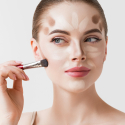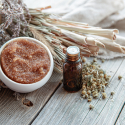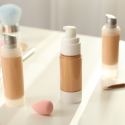- Europa
-
- Amstetten(7)
- Bad Schallerbach(1)
- Baden(4)
- Berg(1)
- Braunau am Inn(5)
- Bregenz(3)
- Bruck an der Mur(1)
- Graz(4)
- Hartberg(1)
- Innsbruck(5)
- Kemmelbach(1)
- Kitzbühel(4)
- Klagenfurt(5)
- Krems an der Donau(1)
- Kufstein(5)
- Leibnitz(1)
- Lienz(1)
- Liezen(1)
- Linz(5)
- Oetz(1)
- Punitz(1)
- Radstadt(1)
- Salzburg(5)
- St Polten(2)
- Steiermark(1)
- Steyr(1)
- Steyregg (1)
- Traun(3)
- Vienna(26)
- Villach(5)
- Völkermarkt(1)
- Wels(5)
- Wien(1)
- Wiener Neustadt(4)
-
- Aalst(1)
- Aarschot(2)
- Affligem(1)
- Anderlecht(5)
- Antwerp(11)
- Antwerpen(1)
- Arlon(6)
- Ath(2)
- Aubange(5)
- Bastogne (2)
- Blankenberge (1)
- Bruges(5)
- Brussels(15)
- Charleroi(5)
- Deinze(3)
- Dendermonde(1)
- Diest(2)
- Etterbeek(5)
- Geel(1)
- Genk(5)
- Gent(6)
- Geraardsbergen(1)
- Grimbergen (2)
- Hasselt(5)
- Heusden- Zolder(2)
- Ieper(1)
- Izegem(1)
- Knokke(4)
- Kortrijk(2)
- La Louviere(2)
- Leuven(5)
- Liege(4)
- Limburg(4)
- Lommel(1)
- Mortsel(1)
- Oostende(1)
- Turnhout(1)
-
- Chelyabinsk(1)
- Dubna(4)
- Gelendzhik(1)
- Irkutsk(1)
- Kaliningrad(1)
- Kazan(4)
- Krasnodar(3)
- Krasnoyarsk(1)
- Maykop(1)
- Moscow(50)
- Nizhny Novgorod(4)
- Novosibirsk(1)
- Omsk(1)
- Penza(1)
- Rostov-on-Don(2)
- Saint Petersburg(13)
- Samara(1)
- Saratov(1)
- Serpukhov (2)
- Sevastopol(3)
- Sochi(5)
- Stavropol(1)
- Surgut(1)
- Tyumen(2)
- Ufa(2)
- Vladivostok(3)
- Yekaterinburg (11)
-
- Alicante(8)
- Barcelona(113)
- Benalmadena(1)
- Benidorm(7)
- Castellón de la Plana(1)
- Denia(1)
- Estepona(1)
- Fuengirola (3)
- Ibiza(49)
- Jerez de la Frontera(1)
- Lanzarote(1)
- Las Palmas de Gran Canaria(5)
- Madrid(57)
- Malaga(9)
- Marbella(48)
- Murcia(1)
- Oviedo(1)
- Palma de Mallorca(48)
- Puerto Banus(3)
- Seville(1)
- Tarragona(1)
- Tenerife(7)
- Torrevieja(3)
- Valencia(9)
- Vigo(1)
- Zaragoza(1)
- Worldwide
Understanding Facial Puffiness
 Facial puffiness, a common concern for many, can appear due to various factors ranging from diet to lifestyle choices. While occasional swelling is usually harmless, persistent puffiness may indicate underlying health issues that require attention. This guide delves into the causes of facial puffiness and offers effective strategies to alleviate it.
Facial puffiness, a common concern for many, can appear due to various factors ranging from diet to lifestyle choices. While occasional swelling is usually harmless, persistent puffiness may indicate underlying health issues that require attention. This guide delves into the causes of facial puffiness and offers effective strategies to alleviate it.Causes of Facial Puffiness
Several factors can contribute to facial swelling. Understanding these can help you take the necessary steps to minimize and prevent puffiness.
Dietary Influences
High Sodium Intake: Consuming too much salt can lead to water retention, causing the face to swell.
Alcohol Consumption: Alcohol dehydrates the body, prompting it to retain water, which can result in a puffy appearance.
Lifestyle Factors
Lack of Sleep: Inadequate rest can cause the body to retain fluid, especially around the eyes and face.
Stress: Chronic stress can lead to hormonal imbalances that contribute to swelling.
Health Conditions
Allergies: Allergic reactions often cause the face to swell, especially around the eyes.
Hormonal Changes: Hormonal fluctuations, particularly in women, can cause fluid retention and puffiness.
Preventing Facial Puffiness
Taking proactive steps in your daily routine can significantly reduce the likelihood of waking up with a swollen face.
Adjust Your Diet
Reduce Salt Intake: Opt for low-sodium foods to minimize water retention.
Stay Hydrated: Drinking plenty of water helps flush out excess sodium and keeps your skin looking fresh.
Improve Sleep Quality
Regular Sleep Schedule: Aim for 7-9 hours of sleep per night to give your body time to rest and rejuvenate.
Elevate Your Head: Sleeping with your head slightly elevated can prevent fluid from accumulating in your face.
Manage Stress
Practice Relaxation Techniques: Incorporate activities like yoga, meditation, or deep breathing exercises to reduce stress levels.
Balanced Lifestyle: Ensure a healthy work-life balance to minimize chronic stress.
Effective Remedies for Reducing Puffiness
If you’re already experiencing facial puffiness, several remedies can help reduce swelling and restore your skin’s natural tone.
Cold Compresses
Applying a cold compress to the face can constrict blood vessels, reducing swelling and providing instant relief.
How to Use: Place a clean, cold cloth or a specialized gel mask over your face for about 10 minutes.
Facial Massage
A gentle facial massage can improve circulation and lymphatic drainage, helping to reduce puffiness.
Technique: Use your fingertips to gently massage your face in upward, circular motions, focusing on areas prone to swelling.
Herbal Remedies
Natural ingredients like cucumber, green tea, and aloe vera are known for their anti-inflammatory properties and can be used to soothe puffiness.
Cucumber Slices: Place chilled cucumber slices over your eyes for 10-15 minutes.
Green Tea Bags: Steep green tea bags, cool them in the fridge, and place them on your eyes to reduce swelling.
When to See a Doctor
While facial puffiness is often harmless, it can sometimes signal a more serious health issue. Consult a healthcare professional if you experience persistent or severe swelling, especially if accompanied by other symptoms such as difficulty breathing, rash, or significant pain.









